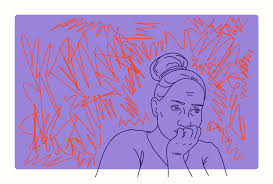
Anxiety and depression are two of the most common mental health conditions affecting millions of people worldwide. Both conditions can significantly impact daily life, making it difficult to work, maintain relationships, or even engage in simple activities. While anxiety and depression can occur separately, they often coexist, making management more challenging but equally important.
Managing anxiety and depression requires a multi-faceted approach that may involve lifestyle changes, therapy, medication, and self-care strategies. Here’s a guide to help understand how to manage both anxiety and depression effectively.
1. Understanding Anxiety and Depression
Anxiety is characterized by excessive worry, fear, or nervousness about everyday situations. People with anxiety often experience physical symptoms like a racing heart, restlessness, and difficulty concentrating. Common types of anxiety disorders include generalized anxiety disorder (GAD), panic disorder, and social anxiety disorder.
Depression, on the other hand, is marked by persistent sadness, hopelessness, and a lack of interest or pleasure in activities. It can affect sleep, appetite, energy levels, and self-worth. Depression can range from mild to severe and may last for weeks, months, or even years.
When these two conditions occur together, they can create a cycle of negative thinking, fatigue, and emotional distress, which makes it crucial to adopt strategies for both conditions.
2. Lifestyle Changes
For both anxiety and depression, making healthy lifestyle changes can have a profound impact on managing symptoms. While these changes are not cures, they can complement other forms of treatment and provide significant relief.
a. Exercise Regularly
Physical activity is a powerful tool in managing anxiety and depression. Exercise releases endorphins, which are natural mood enhancers that can help reduce feelings of sadness and anxiety.
- Aerobic exercises like walking, running, swimming, or cycling are particularly effective.
- Try to aim for at least 30 minutes of moderate exercise most days of the week.
b. Eat a Balanced Diet
What you eat can influence your mental health. Nutrient-dense foods that are rich in vitamins, minerals, and healthy fats can help stabilize mood and energy levels.
- Incorporate foods high in omega-3 fatty acids (like fish, walnuts, and flaxseeds), which are known to improve mood.
- Avoid excessive caffeine, sugar, and processed foods, as they can trigger mood swings and worsen anxiety.
c. Get Enough Sleep
Sleep and mental health are closely linked. Lack of sleep can worsen symptoms of anxiety and depression, and both conditions can make it harder to get a good night’s rest.
- Aim for 7-9 hours of quality sleep per night.
- Establish a regular sleep routine by going to bed and waking up at the same time every day, even on weekends.
- Avoid screens (phones, tablets) before bed, as they can interfere with your body’s production of melatonin.
3. Therapy and Counseling
Professional therapy is one of the most effective ways to manage both anxiety and depression. Different therapeutic approaches can help identify and challenge negative thought patterns, offer coping strategies, and improve overall emotional health.
a. Cognitive Behavioral Therapy (CBT)
CBT is widely used to treat both anxiety and depression. It focuses on changing negative thought patterns and behaviors that contribute to emotional distress.
- For anxiety: CBT helps individuals identify irrational fears and replace them with more rational, calming thoughts.
- For depression: CBT works by challenging the negative self-beliefs and hopelessness that are common in depression.
b. Dialectical Behavior Therapy (DBT)
DBT combines cognitive-behavioral techniques with mindfulness practices. It is often helpful for individuals who experience intense emotional reactions, especially when anxiety and depression co-occur.
- Mindfulness: Encourages staying present in the moment and observing thoughts without judgment.
- Emotional Regulation: Teaches strategies to manage and reduce intense emotions like fear, sadness, or anger.
c. Acceptance and Commitment Therapy (ACT)
ACT encourages individuals to accept their thoughts and feelings rather than fighting them. It helps build psychological flexibility, which can improve the way individuals respond to anxiety and depression triggers.
d. Interpersonal Therapy (IPT)
IPT focuses on improving personal relationships and communication skills. It is particularly useful for treating depression by addressing unresolved grief, relationship conflicts, or social isolation that may be contributing to the condition.
4. Medication
In some cases, medication may be prescribed to help manage anxiety and depression, especially when symptoms are severe or have not improved with therapy alone.
a. Antidepressants
Antidepressants are commonly prescribed to treat both depression and anxiety. These medications help regulate brain chemicals that affect mood and anxiety levels.
- Selective Serotonin Reuptake Inhibitors (SSRIs): Commonly prescribed for both anxiety and depression, including medications like fluoxetine (Prozac) or sertraline (Zoloft).
- Serotonin-Norepinephrine Reuptake Inhibitors (SNRIs): These medications, like venlafaxine (Effexor), are also used to treat both conditions.
b. Anti-Anxiety Medications
In some cases, anti-anxiety medications may be prescribed to treat acute anxiety.
- Benzodiazepines (such as diazepam or lorazepam) are often prescribed for short-term relief but can be habit-forming, so they are generally used for brief periods.
- Buspirone: A non-habit-forming anti-anxiety medication that is often used for long-term management of anxiety.
c. Consult with a Healthcare Provider
If you are considering medication, it’s important to consult a healthcare provider who can guide you on the right treatment plan. They will assess your specific needs and adjust medications as necessary to minimize side effects and optimize results.
5. Self-Care and Coping Strategies
Self-care plays a crucial role in managing anxiety and depression, especially when combined with professional treatment. Developing daily habits that promote relaxation and emotional balance can help alleviate symptoms over time.
a. Mindfulness and Meditation
Mindfulness encourages being present and aware without judgment. It can help reduce stress, improve mood, and ease symptoms of anxiety and depression.
- Try guided meditations or mindfulness apps to get started.
- Deep breathing exercises, progressive muscle relaxation, or yoga can also promote mindfulness and relaxation.
b. Journaling
Writing down thoughts, feelings, and experiences can be a therapeutic way to manage anxiety and depression. Journaling helps individuals process emotions and identify negative thought patterns.
- Consider a gratitude journal to focus on positive aspects of your day, which can help shift attention away from negativity.
c. Engage in Enjoyable Activities
Depression can sap motivation and pleasure from activities you once enjoyed. Try to re-engage in hobbies or activities, even if your interest feels low at first. Taking part in creative activities, sports, or spending time with loved ones can lift your mood over time.
d. Social Support
Isolation can worsen symptoms of anxiety and depression, so building a support network is essential. Share your feelings with trusted friends or family members and seek social activities that don’t feel overwhelming.
- If face-to-face interactions feel too difficult, consider online support groups or forums where you can connect with others going through similar struggles.
6. When to Seek Help
It’s important to recognize when symptoms of anxiety and depression become overwhelming. Seek professional help if you experience:
- Persistent feelings of hopelessness, sadness, or fear that don’t improve with self-care strategies.
- Difficulty performing daily tasks like going to work, maintaining relationships, or taking care of yourself.
- Thoughts of self-harm or suicide (seek immediate help if this occurs).
Conclusion
Managing anxiety and depression is a long-term process that requires a combination of therapy, lifestyle changes, medication (if needed), and self-care strategies. By creating a personalized approach and seeking help when necessary, you can take meaningful steps toward regaining control of your mental health and improving your overall well-being. With the right tools and support, it is possible to manage and reduce the impact of both conditions on daily life.
